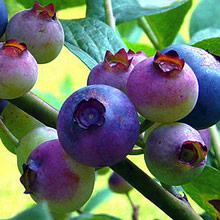Drug and alcohol cravings have been proven to affect cognitive performance (study participants demonstrate slower reaction times, increased levels of distraction and impaired working memory skills when exposed to craving inducing stimuli). Given the parallels between substance abuse and binge-eating (see: Similarities Between Food Addiction and Drug Addiction), it’s not surprising that researchers have extended this principle to food – finding that food cravings, like drug and alcohol cravings, negatively impact cognitive functioning.
Until recently, food and working memory research has been limited to chocolate; in 2010, Tiggermann, Kemps and Parnell confirmed that chocolate cravings interfere with memory by competing for visuospatial working memory resources (see also: Kemps, Tiggermann and Grigg, 2008). However, a 2012 study published in Appetite (Meule, Skirde, Freund, Vögele and Kübler) found that high-calorie food cues also induce cravings and impair working memory performance – meaning that the role of cravings in cognitive performance doesn’t just stop at M&M’s.
In addition to cravings, unhealthy food also plays a more direct role in memory impairment. As most of us know, saturated fat clogs arteries and, in many cases, leads to heart disease. However, what a lot of people don’t realize is that arterial plaque (from those same saturated fats) can also cause vascular dementia. Addressing this concern, Dr. Mehmet Oz, director of the Cardiovascular Institute at New York Presbyterian Hospital (and yes, he is that Dr. Oz), and Dr. Michael Roizen, chair of the Wellness Institute at the Cleveland Clinic, point to an interesting statistic:
“The eight southern states in America that make up the ‘Stroke Belt’ also have higher incidences of obesity and greater chance of dementia.”
(For a quick review of the “Stroke Belt” states, see: Is ‘Stroke Belt’ also the ‘Bad Memory Belt’?.)
So if high-calorie and unhealthy foods interfere with memory (either directly or indirectly through cravings), what food should we focus on to improve memory?
Blueberries!
Listed as one of the fourteen healthiest foods in the world by Superfoods Rx, blueberries contain anthocyanins and polyphenols – antioxidants that may have the ability to actually reverse memory problems. Writing for the Superfoods Rx website, Dr. Geoffrey R. Harris discusses the findings of a 2008 study (Williams, C.M., Mohsen, M.A.E., Vauzour, D., Rendeiro, C., Butler, L.T., Ellis, J.A., Whiteman, M., & Spencer, J.P.E.):
The researchers compared the performance of young rats with older rats. Some of the older rats received blueberry powder that was high in anthocyanins and flavonoids as a supplement to their regular feed. […] Generally, the younger rats performed the memory tasks well, with a 90 percent accuracy rate. However, older rats only had a 57 percent accuracy rate at the same spatial memory tasks. Remarkably, the group of older rats who received blueberry powder along with their standard feed for three weeks increased their performance on the memory task from 60 to 83 percent accuracy. The polyphenols in the blueberry powder actually seemed to increase recall capacity in the rats and reverse age-related memory problems.
To learn about more memory-boosting foods, see the Huffington Post’s article, Foods that Boost Your Memory.
(And, for a really fun way to test your own working memory, click here!)
References
Chan, A. (3 June 2011.) “Is ‘Stroke Belt’ also the ‘Bad Memory Belt’?” NBC News: Heart Health (Online). Retrieved: 25 October 2012.
“Cognitive Tests: Working Memory (n-back).” (2012.) CognitiveFun.Net. Retrieved: 24 October 2012.
“Foods That Boost Your Memory.” (27 August 2012.) Huffington Post (Online). Retrieved: 24 October 2012.
Kemps, E., Tiggermann, M., & Grigg, M. (September 2008). Food cravings consume limited cognitive resources. Journal of Experimental Psychology: Applied, 14 (3), 247-254. doi: 10.1037/a0012736. Retrieved: 24 October 2012.
Harris, G. “Don’t Forget the Blueberries.” SuperFoods Rx. Retrieved: 24 October 2012.
Meule, A., Skirde, A.K., Freund, R., Vögele, C., & Kübler, A. (October 2012). High-calorie food-cues impair working memory performance in high and low food cravers. Appetite, 59 (2), 264-269. doi: 10.1016/j.appet.2012.05.010. Retrieved: 24 October 2012.
Oz, M., & Roizen, M. (18 January 2012). “Food for Memory: 5 Foods that Age Your Brain.” Huffington Post: Healthy Living (Online). Retrieved: 24 October 2012.
Tiggermann, M., Kemps, E., & Parnell, J. (October 2010). The selective impact of chocolate craving on visuospatial working memory. Appetite, 55 (1), 44-48. doi: 10.1016/j.appet.2010.03.010. Retrieved 24 October 2012.
Williams, C.M., Mohsen, M.A.E., Vauzour, D., Rendeiro, C., Butler, L.T., Ellis, J.A., Whiteman, M., & Spencer, J.P.E. (1 August 2008). Blueberry-induced changes in spatial working memory correlate with changes in hippocampal CREB phosphorylation and brain-derived neurotrophic factor (BDNF) levels. Free Radical Biology and Medicine, 45 (3), 295-305. doi: 10.1016/j.freeradbiomed.2008.04.008. Retrieved 24 October 2012.



Great article! Very informative, well-written and well-researched. We grow blueberries, but not at this time of year in PA. I’ll be putting them on my shopping list after reading this! Thanks!
So glad you liked it! We had a lot of wild blackberries (also a good source of anthocyanins!) growing by our house when I was younger – there’s something about picking them yourself that just makes them taste better! :)
This is very intersting! Thank goodness I love blueberries! :)